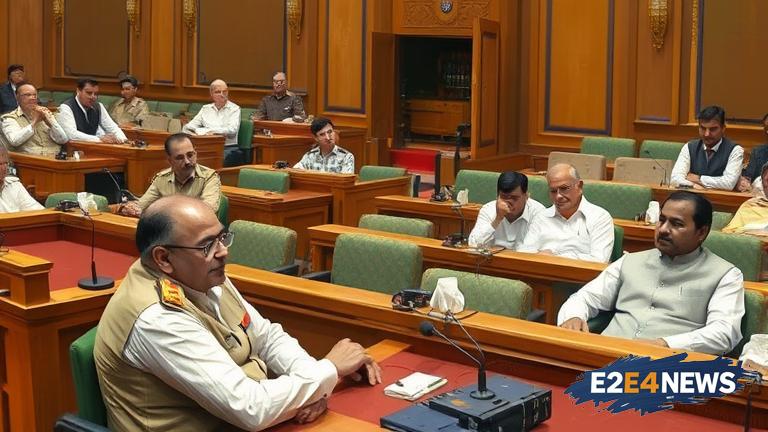The Rajya Sabha witnessed a intense debate on the deployment of Central Industrial Security Force (CISF) personnel under Rule 267, with opposition members accusing the government of misusing the rule to suppress dissent. The opposition members claimed that the rule was being used to silence their voices and prevent them from raising important issues. The ruling party members, however, defended the deployment of CISF personnel, stating that it was necessary to maintain order and discipline in the House. The debate began when an opposition member moved a motion under Rule 267, seeking to discuss a matter of urgent public importance. However, the motion was rejected by the Chair, leading to protests from the opposition members. The opposition members alleged that the Chair was being biased and was not allowing them to raise their concerns. The ruling party members, on the other hand, accused the opposition of disrupting the proceedings of the House and not allowing important legislative business to be transacted. The debate took a heated turn when an opposition member made some strong remarks against the government, prompting the ruling party members to demand an apology. The opposition member, however, refused to apologize, leading to a stalemate. The Chair intervened and asked the opposition member to withdraw his remarks, but he refused. The ruling party members then moved a motion to suspend the opposition member from the House, which was passed with a voice vote. The opposition members walked out of the House in protest, alleging that the government was trying to muzzle their voices. The ruling party members, however, claimed that they had no option but to take action against the opposition member, as he had refused to apologize for his remarks. The debate highlighted the growing rift between the opposition and the ruling party, with both sides accusing each other of not being interested in smooth functioning of the House. The opposition members alleged that the government was not willing to listen to their concerns and was trying to bulldoze its way through the Parliament. The ruling party members, on the other hand, claimed that the opposition was not interested in cooperating with the government and was only interested in disrupting the proceedings of the House. The debate also raised questions about the role of the Chair in maintaining order in the House, with some members alleging that the Chair was being biased. The opposition members demanded that the Chair should be impartial and should allow them to raise their concerns without any fear of reprisal. The ruling party members, however, claimed that the Chair had done nothing wrong and had only taken action against the opposition member as per the rules of the House. The debate is likely to have a significant impact on the functioning of the Rajya Sabha, with the opposition members threatening to continue their protests until their demands are met. The government, however, seems determined to push through its legislative agenda, despite the opposition from the other side. The debate has also raised questions about the future of the Parliament, with some members alleging that the institution is being undermined by the government’s actions. The opposition members have vowed to continue their fight against the government’s alleged attempts to muzzle their voices, while the ruling party members have claimed that they will not be intimidated by the opposition’s tactics. The debate has highlighted the need for greater cooperation and understanding between the opposition and the ruling party, if the Parliament is to function smoothly. The government needs to reach out to the opposition and address their concerns, rather than trying to bulldoze its way through the Parliament. The opposition members, on the other hand, need to be more constructive in their approach and should try to find common ground with the government, rather than simply opposing everything that the government proposes.





